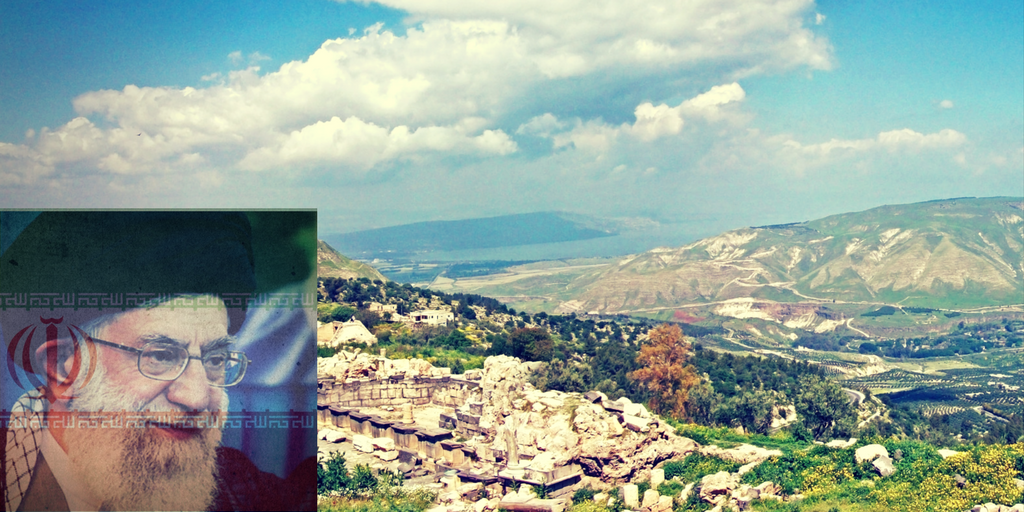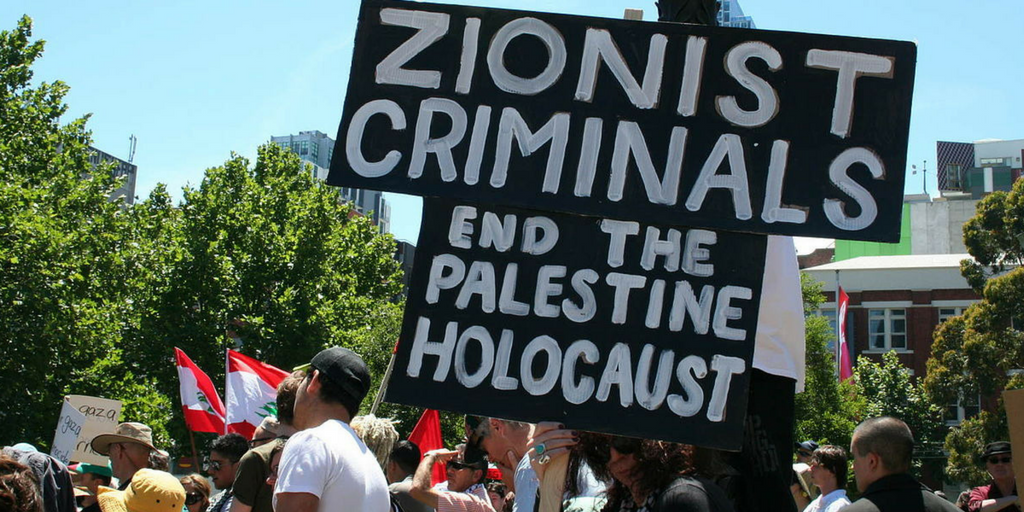Originally published as: INTO THE FRAY- Gaza:The ultimate indictment of “two-statism”
The real humanitarian solution to the plight of Gaza lies not in its reconstruction, but in its deconstruction
…the prospective Palestinian state is bound to be a failed and repressive entity, and a permanent danger to its Israeli and Jordanian neighbors Elliott Abrams, in a briefing to the Middle East Forum, June 15, 2017
Hamas wants Israel to supply it with electricity “or else”, but there is no reason why Israel should submit to Hamas extortion. It is not Israel’s obligation to satisfy the needs of a population that continues, through its ongoing support of Hamas, to pursue Israel’s destruction. Efraim Inbar, Gaza in the Dark Is Not So Terrible, June 18, 2017
What is the point of raising and spending many millions of dollars to rebuild the Gaza Strip just so it can be destroyed in the next war? It’s a harsh question. Given the region’s tragic history, it is also inevitable. –New York Times Editorial, October 10, 2014
Once again Gaza is in the news.
Once again the specter of “humanitarian disaster” hovers over the population on the coastal enclave, the hapless victims of the hopelessly ill-conceived endeavor to foist statehood on the Palestinian-Arabs.
Inane and iniquitous idea
Ironically, this time the deteriorating plight of the Gazans was not thrust into the media spotlight because of any Israeli initiative—or indeed, not even because of any Israeli response to Palestinian aggression—but rather at the behest of the nominal head of the Palestinian Authority, Mahmoud Abbas.
It was, after all, at Abbas’s request that Israel reduced even further the already scant supply of electricity to the beleaguered territory, making life even more onerous for the unfortunate population of the Gaza Strip—apart, of course, from the vastly wealthy cliques of connected cronies.
Clearly, the power cuts were merely one additional measure of misery the average Gazan has had to endure since the fatally flawed formula of two-statism was instigated almost a quarter-century ago.
This inane and iniquitous idea has wrought almost every imaginable hardship on the residents of this ill-fated strip of land: Spiraling unemployment; collapsing infrastructure, domestic tyranny and fratricidal factionalism.
Depending on which report one chooses to lend credence to, unemployment has reached 40%-60% and is particularly severe among the young and the more educated segments of the population; up to 96% of the water resources are reported to be unfit for drinking; the only power station has shut down because of a lack of fuel following, the refusal of Abbas to foot the bill; the supply of electricity has been cut from four hours a day to three; the lack of sewage treatment and disposal is becoming critical.
These then, are all the bitter fruits of two-statism.
Trying to solve the problem by reintroducing its cause?
Of course, one of the most absurd aspects of the discourse on the future of Gaza and how to handle the grave and growing problems of the area, is the prevailing platitude that the governance of the area should somehow be wrested from Hamas and restored to Abbas’s Fatah, whose corrupt and dysfunctional governance was the reason for Hamas’s ascendance in the first place. As if reinstating the cause for the current problem will somehow solve it.
Unsurprisingly, the Palestinian-Arabs, particularly those in Gaza, seem decidedly skeptical as to the efficacy of such a measure. Indeed, recent Palestinian polls point to wide spread dissatisfaction with Abbas and Fatah. Overall, in the Palestinian-administered territories, almost two thirds feel that Abbas, who has been in office three times his elected term, should resign, while 70% hold this view in Gaza. Indeed, the fear that Hamas may well win a new election is widely considered the reason that none have been held since 2005.
Moreover, it is widely acknowledged that without Israel’s military presence in Judea-Samaria, the Abbas regime would be speedily disposed of, as it was in Gaza. Accordingly, there is little reason to believe that, were Abbas’s control over Gaza reinstated, it could endure without restoring IDF presence there as well—hardly something advocates of Abbas’s return seem to advocate.
Nothing unpredictable, nor unpredicted.
The tragedy is that there is nothing about the Gaza fiasco that was not entirely foreseeable, and indeed, foreseen.
Over the last half-decade, I have written a slew of articles warning of the futility and folly of trying to maintain autonomous Arab rule in Gaza. But, perhaps more significantly, over a quarter-century ago (1992) I penned an article, Why we can’t dump Gaza, predicting precisely the course of events that would unfold if Israel abandoned Gaza—events that should have been obvious to anyone with the even slightest grasp of the most rudimentary elements of political science and related disciplines.
I warned: “The inevitable implication of Israeli withdrawal [from Gaza] can be ignored only at great peril to Israelis and Arabs alike”, and explained why such a measure would lead to the take-over by extremist elements like Hamas: “In the ensuing political vacuum [left by Israeli withdrawal], the most radical and violet elements in Gaza would undoubtedly seize power. In the absence of recognized institutions of government, all the more moderate elements would be speedily eliminated, either politically or physically”—as indeed they were!
I cautioned as to the impact of inadequate infrastructure: “The Gaza Strip does not have the means to sustain any semblance of durable economic life. Its water resources are increasingly being salinated through over-use, it has no land reserves, no indigenous sources of energy or power, no existing infrastructure for the conduct of international trade…”
Accordingly, I pointed out: “A total separation between Israel and the Gaza Strip …to stop the flow of ‘undesirable’ workers in search of the livelihood their immediate environs cannot provide” would precipitate widespread unemployment and resultant turmoil: “A denial of employment would inevitably increase the frustration and bitterness of the beleaguered population and its potential for incitement, lawlessness and violence”.
Foreseeing economic privation, violence and international censure
I identified the difficulties Israel would have in maintaining security and preventing smuggling of armaments particularly along the maritime border and Sinai frontier: “…the IDF would only be able to supervise along the northern and [eastern] approaches to the Strip. It would have no control over smugglers wishing to enter from the west (via the sea) or the south (via Sinai)”.
The result was not difficult to forecast: “ The combination of these elements is a certain formula for explosive social and political unrest, feeding on a deepening sense of hopelessness, misery and deprivation of the local population, feelings which will inevitably be directed against the most obvious and convenient target – Israel.”
The diagnosis of what was to follow was unequivocally clear, making operations such Cast Lead, Pillar of Defense and Protective Edge unavoidable: “…our southern settlements and towns will be the targets of frequent attacks, which will compel Israel to retaliate.”
The predicament of waging “asymmetric” war was not hard to foretell.
I wrote: “But how and against whom? Without a military presence, the IDF will not be able to identify and apprehend those responsible…”, and warned of the ramifications of “collateral damage” and consequent international censure: “Air strikes or artillery shelling on civilian population centers will cause heavy casualties among the dense, destitute masses in whose midst the attackers would conceal themselves”, asking trenchantly: “How would world opinion react”.
Consequently, I predicted: “Unilateral withdrawal from Gaza will do nothing to ease the socio-economic plight of the local inhabitants, nor will it reduce the politico-security problems of Israel; rather it will be likely to exacerbate them.” I leave it to the reader to judge to what degree that prediction has been borne out.
Underscoring the untenability of two-statism
Accordingly, just how hopeless the doctrine of two-statism is, especially with regard to Gaza, should have been abundantly clear from the get-go for anyone with an iota of intellectual integrity and a smidgeon of analytical ability. But, if for some reason, anyone required further proof, Abbas’s initiative to impose further hardship on his harrowed kinfolk should provide it, removing all shadow of doubt.
For it served to highlight two things (a) The dismal plight of the Gazan population, who along with the residents of Jericho, were the first to be subjected to the egregious experiment of thrusting self-government on the Palestinian-Arabs, two-and-half decades after the start of that experiment; (b) the callous disregard that the Palestinian-Arab leadership has for the welfare of their people. After all, calling for the reduction of power to Gaza is a measure that will negatively impact virtually every walk of life, from the functioning of medical equipment through sewage treatment to desalination plants for production of scarce drinking water.
The miserable circumstances in Gaza—in terms of the physical conditions that prevail, the quality of governance, and the priorities of the leadership—offer prospects for the future that, charitably, can only be described as bleak—underscoring just how untenable the dogma of two-statism has shown itself to be.
Israel’s counter-productive largesse
Indeed, the three introductory excerpts encapsulate the enduring and endemic hopelessness that is Gaza.
The first (from Elliot Abrams) relates to the nature of the political entity that can be expected to emerge from any process of two-statism. After all, there is little reason to believe—and certainly no evidence that the empirical record has produced in the last quarter century—that the prospective Palestinian-Arab state will be anything but a homophobic, misogynistic Muslim-majority tyranny. Indeed, even its most fervent proponents have yet to produce anything approaching a persuasive argument to have us believe otherwise.
The second (from Prof. Efraim Inbar) relates to the nature of the population that will inhabit the political entity and the kind of conduct we can expect from it. As Inbar remarks: “…the Gazans cannot be exempted from responsibility for the consequences of Hamas’s actions…Hamas remains popular in Gaza, and all polls show that Gazans support continued violence against Israel. The Gazans are…not good neighbors, and…do not deserve Israel’s sympathy.”
The third (from the New York Times editorial) relates to the nature of the prospects the territory has for its future—and futility of maintaining the belief that there is any point to sustaining the two-state enterprise. For it raises the “harsh” but “inevitable” question: “Given the region’s tragic history” what is the point of further reconstruction efforts?
In this regard, Inbar echoes this trenchant question. Taking it a little further he asks: “What moral justification exists that compels Israelis to assist people who support an organization intent on destroying them?”
His answer: “There is no strategic or moral reason why Israel should supply free electricity to Gaza.”
Humanitarian Solution to Humanitarian Crisis: Deconstruction not Reconstruction
Inbar is of course entirely correct. The Israeli government would do well to heed his counsel, and, taking its cue from Abbas’s demand, begin a phased withdrawal of all services and goods it currently provides the Palestinian Arabs, while offering the non-belligerent residents generous relocation grants, so that they can seek better, more secure lives elsewhere—outside the “cycle of violence” that the leaders wreak upon them regularly.
As I have pointed on numerous occasions, this will allow them to extricate themselves not only from any resultant “humanitarian crisis”, but also from the clutches of the cruel, corrupt cliques that have led them astray for decades.
Thus, the real humanitarian solution to the plight of Gaza lies not in its reconstruction but in its deconstruction.
Indeed I raised this proposal in my 1992 article, by asking: “What, then, is the solution to this festering and intractable problem?”
I began my answer by pointing out: “It is essential to realize that no measure, whether total annexation or total withdrawal, can be reconciled with either Israel’s security or the welfare of the Arab population there”.
I clarified “This is not a call for a forcibly imposed racist ‘transfer’ by Israel, but rather for the initiation of an appeal to enlist international support for the rehabilitation elsewhere of hundreds of thousands of refugees. They are the victims of war, held hostage…by those purporting to be committed to their welfare”.
In conclusion, I urged: “Instead of expounding the merits of a policy of dismantling Jewish settlements or abandoning the fate of Jewish settlers to some autonomous Arab regime (both antithetical to the Zionist ethos), the…leadership charged with responsibility for the conduct of Israel’s foreign policy would do well to devote its efforts to marshalling international pressure in support of this humane and historically imperative enterprise.”
Imagine how different things might have been, had my call been heeded, instead of waiting 25 years–for the ultimate indictment of two-statism.







